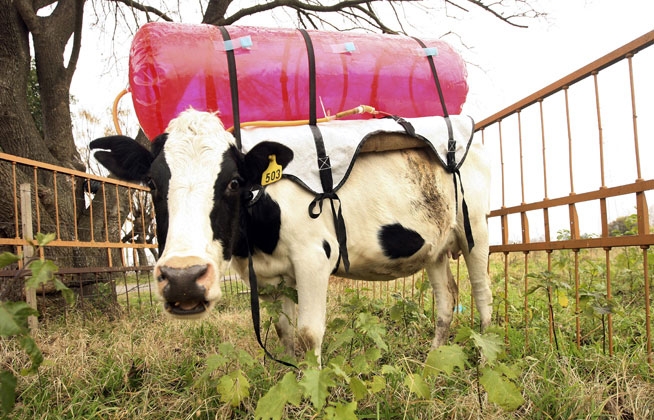
Science will be needed to solve the livestock methane emission issue before the deadline in 2015, when our stock could be taxed for their part in global warming .
Two common herbs have been shown to reduce methane emissions by 40%, in recent trials at Newcastle University in Britain.
Working like antibiotics the spices killed "bad" bacteria and allowed the "good" ones to flourish.
And an added bonus was it was shown that sheep waste energy through this loss in methane, which if prevented could help improve milk and meat yields.
It was believed similar results would be seen in both goats and cows.
Forget low-energy lightbulbs and solar-powered homes – curry spices could hold the key to reducing greenhouse gas emissions. Research carried out at Newcastle University has found that coriander and turmeric – spices traditionally used to flavour curries – can reduce the amount of methane produced by bacteria in a sheep’s stomach by up to 40pc. Working a bit like an antibiotic, the spices were found to kill the methane-producing ‘bad’ bacteria in the animal’s gut while allowing the ‘good’ bacteria to flourish.
The findings are part of an on-going study by Newcastle University research student Mohammad Mehedi Hasan and Dr Abdul Shakoor Chaudhry – the most recent part of which is published this week in the Asian-Australasian Journal of Animal Sciences 2010. Mehedi explained: “Spices have long been used safely by humans to kill bacteria and treat a variety of ailments – coriander seeds, for example, are often prescribed for stomach complaints while turmeric and cloves are strong antiseptics.
“Methane is a major contributor to global warming and the slow digestive system of ruminant animals such as cows and sheep makes them a key producer of the gas. Chemical analysis carried out during the study suggests the high levels of unsaturated fatty acids found in coriander seeds are likely to be responsible for the large reduction in methane gas.
We welcome your comments below. If you are not already registered, please register to comment
Remember we welcome robust, respectful and insightful debate. We don't welcome abusive or defamatory comments and will de-register those repeatedly making such comments. Our current comment policy is here.